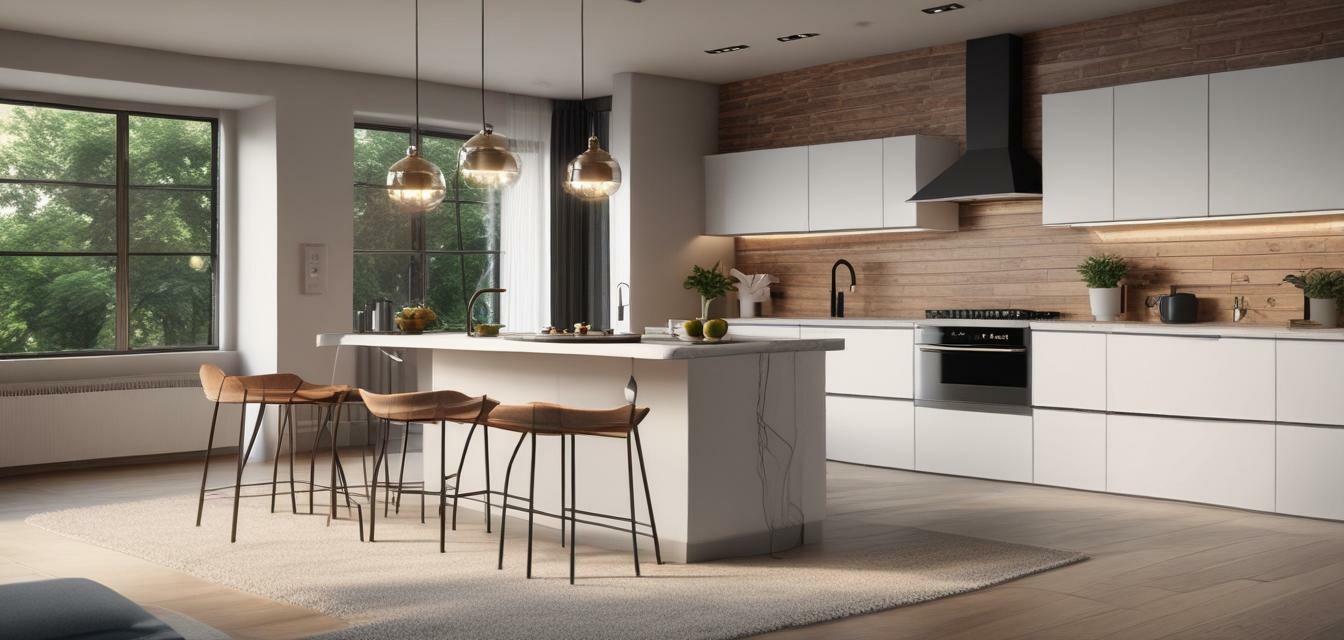
How to Optimize Your Home for Energy Efficiency
Key Takeaways
- Implement simple changes to enhance energy efficiency.
- Utilize energy-efficient appliances to reduce electricity usage.
- Integrate eco-friendly practices into your daily routine.
- Regular maintenance of appliances can maximize efficiency.
- Smart home technology can lead to better energy management.
In an era where energy conservation is more crucial than ever, optimizing your home for energy efficiency is a profoundly impactful step you can take. Not only can it save you money on utility bills, but it also contributes to a healthier planet. This guide explores comprehensive strategies to enhance your home setup for energy efficiency.
1. Start with Energy-Efficient Appliances
One of the most effective ways to make your home more energy-efficient is by investing in energy-efficient appliances. These appliances are designed to consume less energy while providing the same level of performance as standard models.
Appliance Categories to Consider
| Appliance Type | Energy-Efficient Features |
|---|---|
| Refrigerators | LED lighting, inverter compressors, and improved insulation |
| Washers | High-efficiency settings, water-saving features |
| Dishwashers | Soil sensors, efficient wash cycles |
| Heating and Cooling Systems | Programmable thermostats, variable-speed motors |
2. Insulate and Seal Your Home
Proper insulation and sealing of doors and windows can significantly reduce energy consumption. By preventing drafts and maintaining indoor temperatures, you can limit the need for heating and cooling.
Insulation Recommendations
- Check the insulation in your attic and walls.
- Seal gaps and cracks around windows and doors with weather stripping.
- Use caulking to fill in any larger cracks.
3. Use Smart Home Technology
Smart home technology allows homeowners to monitor and control their energy use remotely. From smart thermostats to energy monitoring systems, these tools enable better energy management.
Benefits of Smart Technology
- Schedule heating and cooling according to your lifestyle.
- Receive alerts for unusual energy usage.
- Control appliances remotely for optimal efficiency.
4. Practice Eco-Friendly Habits
Incorporating eco-friendly habits into your daily life can have a cumulative effect on energy consumption. Small changes can lead to significant savings in energy use.
Eco-Friendly Practices
- Turn off lights when leaving a room.
- Utilize natural light whenever possible.
- Unplug electronics when not in use to avoid phantom loads.
5. Regular Maintenance of Appliances
Ensuring that your appliances operate efficiently can greatly reduce energy consumption. Regular maintenance helps identify potential issues and keeps appliances running smoothly.
Maintenance Tips
- CLEAN refrigerator condenser coils twice a year.
- Check and replace HVAC filters regularly.
- Inspect washing machine hoses for leaks and crimping.
Conclusion
Implementing energy-efficient practices and appliances in your home not only conserves energy but also contributes to environmental sustainability. By following the strategies outlined in this guide, you can optimize your home for better energy efficiency while saving money.
Pros
- Reduces utility bills
- Contributes to environmental conservation
- Leads to a healthier indoor environment
- Enhances home comfort
Cons
- Initial costs for eco-friendly upgrades
- Time required for regular maintenance
Tips for Beginners
- Start with small changes, like changing light bulbs to energy-efficient options.
- Gradually replace old appliances with energy-efficient ones.
- Monitor your energy usage regularly to identify areas needing improvement.
For more insights into energy-saving appliances, consider checking out our Tips and How-to Articles page. Explore more about how to enhance energy efficiency with our detailed guides.
